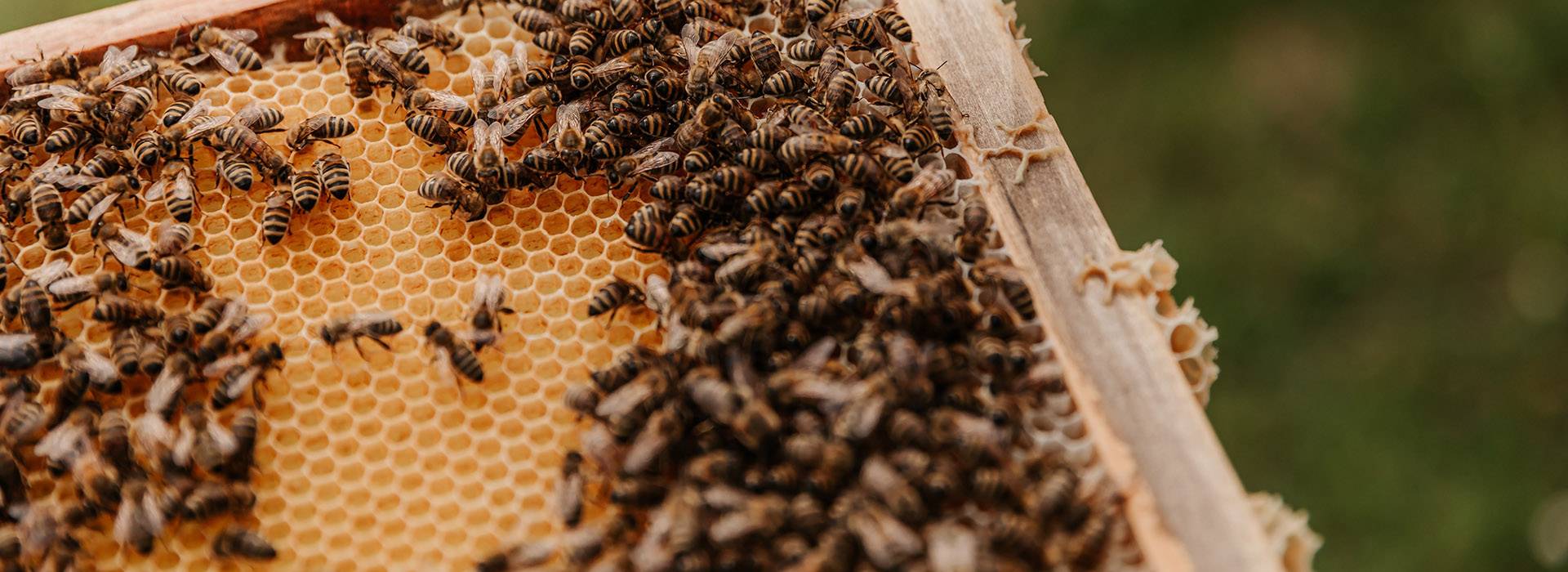
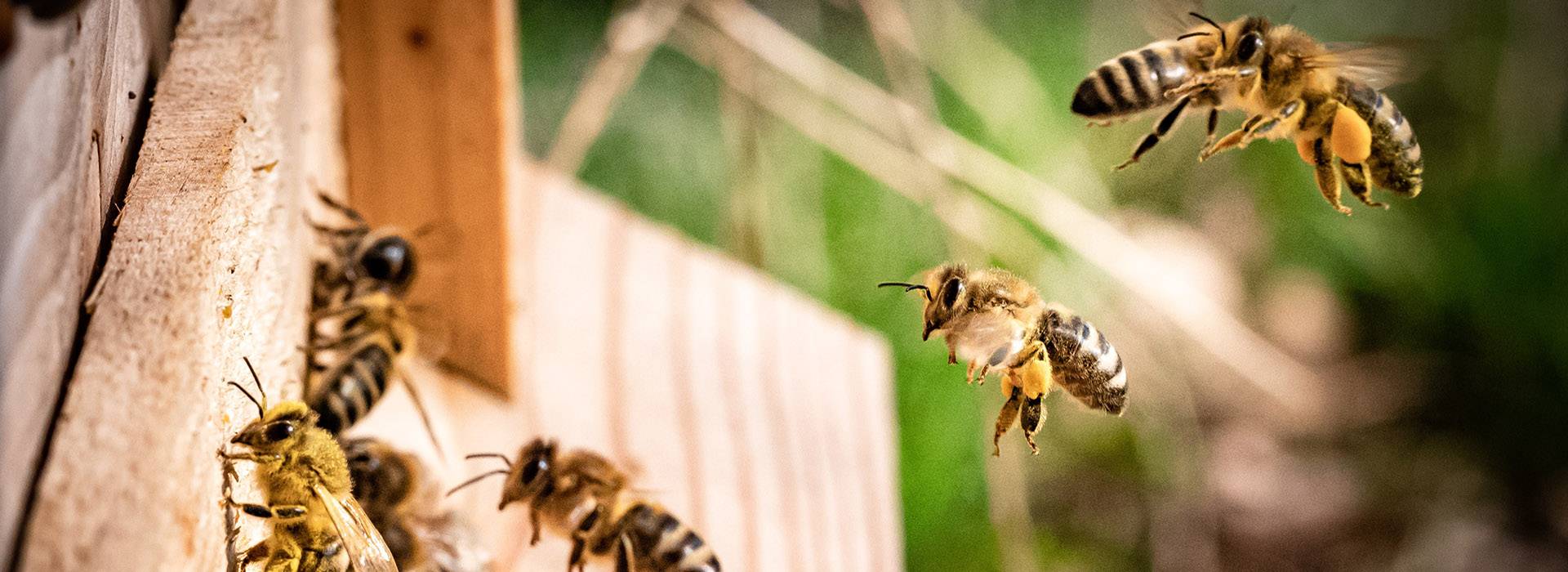
Throughout the season we develop Queens, Nucs and Colonies which have been cared for by our expert beekeepers and are available in a variety of formats, on different size frames.
Buy our Bees
-
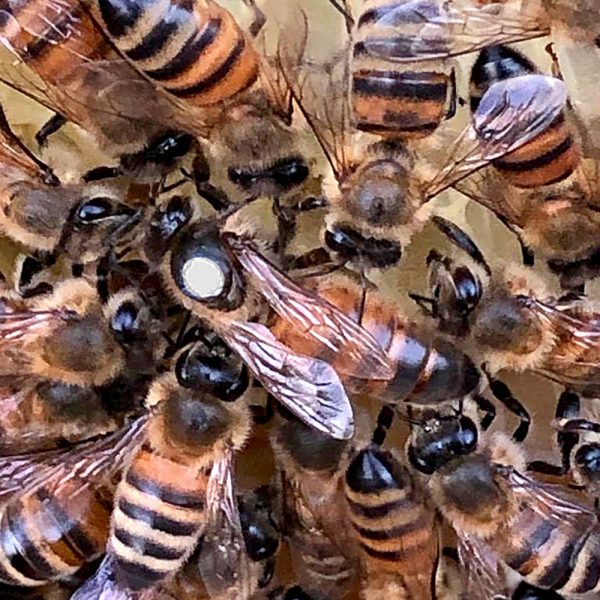
Individual Queens
£40.00 – £50.00 Select options This product has multiple variants. The options may be chosen on the product page -
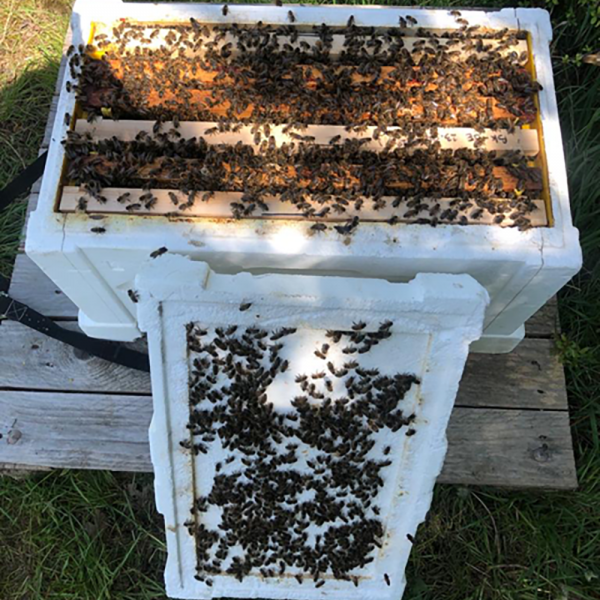
Nucs
£340.00 Add to basket -
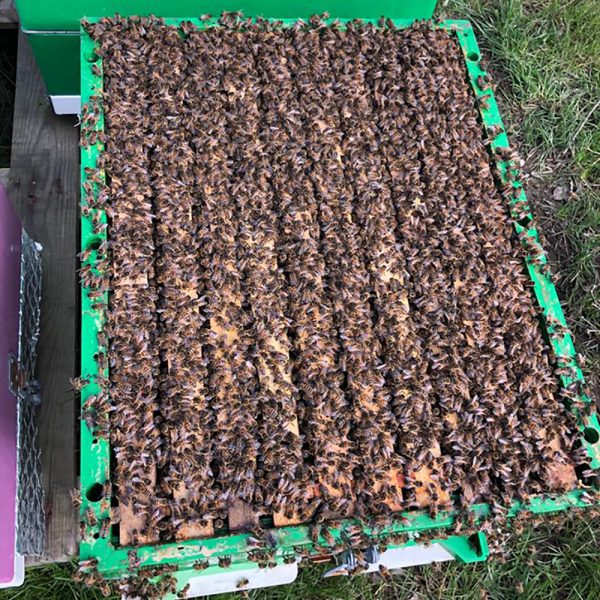
Full Colonies
£650.00 Add to basket -
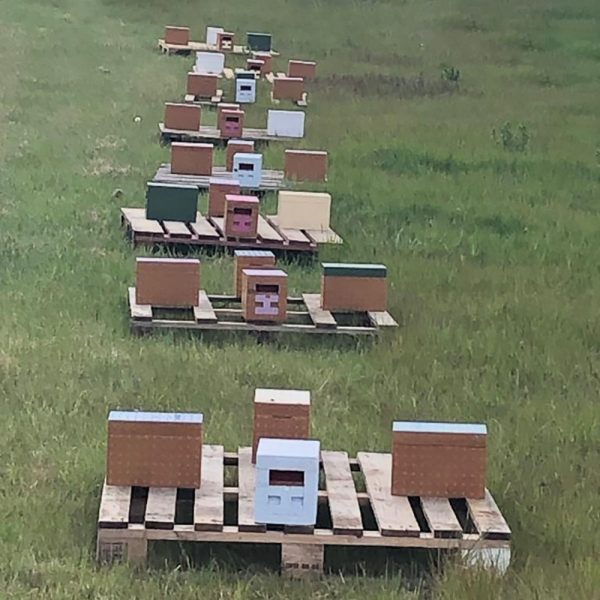
Used Apidea mating Nuc
£20.00 Read more
Helping the bees
There has been a decline in honey bees over the last couple of years and the knowledge we’ve gleaned provides clear evidence that slight changes in the climate have an incredible impact on the pollination performance of bees. So, we respect our bees for all their hard work which provides us with that spoonful of nature’s finest honey for our porridge, yoghurt, toast or scone.
As farmers, we place our bees on flowering crops. You, as gardeners, could really help the bees too, especially at certain times of the year.
When we have “the midsummer gap”- usually during the month of June - there is little forage available, just at a time when the honey bee colonies are at their biggest and hungriest. By planting flowers that are likely to bloom at this time you can provide the bees with a much-needed source of food.
Spring is the time when the colonies build up their numbers again; they will need pollen to feed their new brood. Planting crocuses in the garden can represent a great supply of pollen.
Once the summer flowers have faded, flowering Ivy can give the bees access to some fantastic nectar from September onwards.
